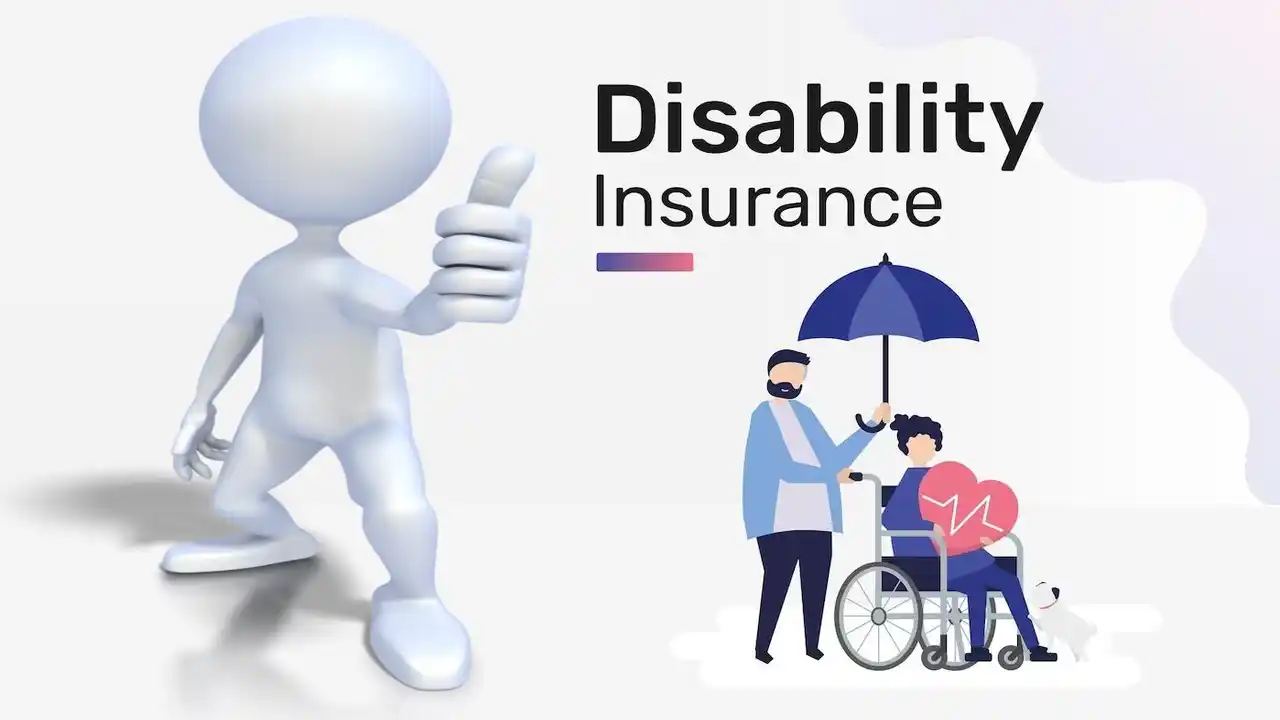When a person suddenly contracts a disease, it can have a substantial impact on their ability to earn a livelihood. Disability insurance supplements income during illness or injury, easing financial stress. It’s a valuable safeguard for new employees, preserving income and financial goals. Early coverage ensures readiness for unexpected disability-related setbacks. This topic outlines disability insurance which will assist you to achieve desired goals in your life.
This insurance is essential for those who rely on their income to provide for their family. It protects them from the potential financial devastation a disability could cause. It is a lifeline because it replaces lost revenue. This aids individuals in fulfilling their financial obligations. Read this guide from a blog post to learn about the best practices for addressing liability car insurance topic.
Disability Insurance Meaning
The coverage and benefits of disability insurance can vary based on the policy’s terms and conditions. Typically, disability insurance pays between 50 and 80 percent of the insured’s pre-disability income. The benefit amount and duration can be affected by variables such as the policyholder’s occupation, income level, and insurance options chosen.
Different laws may have different definitions of disability, which can affect who is eligible for benefits. Others define disability as the inability to perform any job for which one is reasonably qualified based on education, training, or experience. Before purchasing, it’s crucial to review the policy and understand its terms.
Many employers include it in benefits, sharing premium costs. In these instances, the employer typically pays a portion of the premium, making payment easier for the employee. Self-employed or others can get it independently if not offered through work.
Disability Insurance Coverage
Disability insurance is not only for those with physical illnesses. It also addresses mental health issues that may impede a person’s ability to perform. It is a crucial instrument for assisting people with mental health issues because it takes into account the impact of mental health on a person’s ability to work. For your convenience, we have provided an overview of disability insurance with a brief explanation.
Personal Disability Insurance
An individual purchases individual disability insurance to safeguard their income in the event of illness or injury. This form of protection is unrelated to your employment and affords you greater freedom and options. A self-employed person, for instance, may purchase individual disability insurance to protect their income if they become disabled and unable to work.
Disability Insurance Supplement
Individuals can buy supplemental coverage alongside their existing policies. It offers added benefits to fill income gaps. For instance, someone with employer group coverage may get supplemental insurance to extend their protection.
Business Overhead Disability Insurance
It helps ensure that the business can continue operating even if the owner is unable to do so. For instance, if the proprietor of a small business becomes ill or injured and is unable to work, this type of insurance can cover the owner’s rent, utilities, and other essential expenses.
Accidental Death & Dismemberment Insurance
Accidental death and this insurance covers unintended injuries or deaths. It pays out if the insured dies or becomes incapacitated due to an accident. A person who sustains permanent incapacitating injuries in a car accident is one example. The individual’s accidental mortality and policy would pay a benefit.
Self-employment Disability Insurance
If a worker can’t perform their job due to illness or injury, own-occupation insurance provides benefits. Individuals with this form of insurance are eligible for benefits even if they are able to find alternative employment. For instance, if a surgeon sustains a hand injury and is unable to perform procedures, he or she may be eligible for own-occupation disability insurance benefits.
Any Occupation Disability Coverage
Any-occupation disability insurance compensates those unable to work based on their qualifications. It’s usually cheaper than own-occupation insurance but may have stricter eligibility. A software expert who loses their sight and can no longer practice their profession but can still perform administrative duties is one example.
Key Personnel Disability Insurance
The purpose of key person injury insurance is to secure businesses by covering expenses if a key employee becomes ill or injured. When a vital employee is ill or injured, the coverage provides the company with funds to help pay expenses and keep the business operating. For instance, if a company relies heavily on its CEO to make strategic decisions, key person disability coverage would cover transitory management or financial losses during the CEO’s illness.
Disability Insurance for Groups
Frequently, group disability coverage is included in the benefits bundle that a company offers its employees. It refers to a group of individuals, typically company employees or members of an organization. This form of coverage ensures that workers continue to receive compensation if they are unable to work due to illness or injury. A corporation that offers group sickness insurance to all of its personnel is one example.
SSDI: Social Security Disability Insurance
SSDI is a federal program that permits disabled individuals who have paid into Social Security and labored to receive a portion of their money back. It sends money to people each month to help them satisfy their basic needs. A person who has worked for a certain number of years and then becomes permanently disabled and qualifies for SSDI benefits is one example.
Long-term Disability Insurance
Long-term sickness insurance provides protection for a protracted duration, typically a few years or until retirement age. Also, long-term disability insurance is crucial for extended work incapacity. It substitutes regular income for those with chronic illnesses preventing work.
Short-term Disability Insurance
Typically, short-term coverage protects you for a period spanning from a few weeks to a few months. For instance, if a person is injured and must rehabilitate for a brief period, short-term coverage can help pay a portion of their expenses during this time.
Workers’ Compensation & Disability Insurance
Workers’ compensation is a type of insurance that compensates employees who are injured or become unwell on the job. It pays for medical expenses, rehabilitation costs, and a portion of the disabled person’s lost wages. For instance, if a worker sustains a back injury while lifting large objects on the job, workers’ compensation disability coverage will cover their medical expenses and replace their income while they recover.
FAQ
Is it Possible to Cancel or Modify Disability Insurance?
The terms and conditions of the majority of this insurance policies stipulate when the policy can be canceled or modified. It is essential to peruse the policy terms so that you understand when and how things may change.
How Much does Disability Insurance Cost?
Rates for disability coverage vary based on variables such as age, occupation, medical history, coverage quantity, and policy characteristics. In order to evaluate pricing and coverage options, it is essential to obtain quotes from multiple insurance providers.
How Much Disability Insurance do i Require?
The quantity of coverage you need depends on your specific circumstances. Income level, monthly expenses, and other financial obligations should be taken into account when determining the amount of coverage to obtain.
Conclusion
In addition to protecting individuals by providing a financial safety net, disability coverage benefits society as a whole. It makes it simpler for public assistance programs to carry out their responsibilities and enables individuals to maintain their independence, which is advantageous for both businesses and communities. The ability to generate income is one of a person’s most valuable assets. This asset is protected by disability insurance, which provides individuals with financial support and security if they are unable to work due to illness or injury. This prevents them from incurring debt or other financial problems. To summarize, the topic of disability insurance is vital for creating a fair and equitable society.






